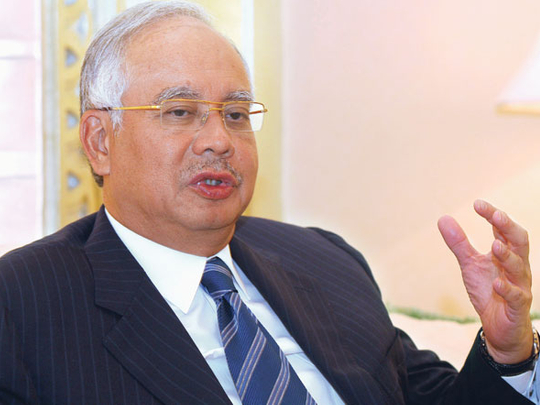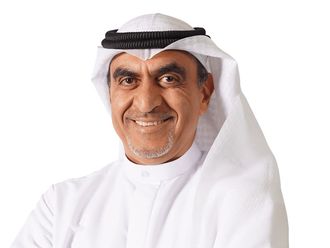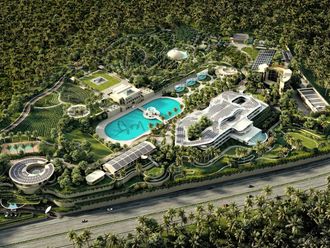
Abu Dhabi: The Islamic banking system has managed to "weather" the global international financial crisis due to its well-regulated foundation, Malaysian Prime Minister Mohammad Najeeb Bin Abdul Razzaq said.
In an exclusive interview with Gulf News during his visit to the UAE on Sunday, the prime minister of the biggest Islamic finance centre in the world also revealed that Kuala Lumpur plans to establish an "iconic" centre to house all its Islamic financial institutions.
"Islamic finance has by and large been able to weather the global economic crisis because it is based on strong fundamentals, and [because] Islamic finance didn't depart from its fundamental principles," Abdul Razzaq replied to a question on the impact of the international financial crisis on Islamic finance structures.
Islamic finance was unlike "conventional" banking, which has many "new financial products that were not based on fundamentals but operated on different premises", he said.
Last year, Malaysia "managed to attain double-digit growth, and this has been the case for some time… the latest figures show that more than 60 per cent of sukuks were issued in Malaysia," Abdul Razzaq said during the interview conducted on the sidelines of the Future Energy Summit held in Abu Dhabi.
The Malaysian premier, accompanied by a high-level delegation including the ministers of foreign affairs and trade, also held talks with the UAE's leadership, including His Highness Shaikh Mohammad Bin Rashid Al Maktoum, Vice-President and Prime Minister of the UAE and Ruler of Dubai, and General Shaikh Mohammad Bin Zayed Al Nahyan, Crown Prince of Abu Dhabi and Deputy Supreme Commander of the UAE Armed Forces.
Leader
Malaysia is considered the world's leader in Islamic finance and is still "well-positioned" to continue playing this role, Abdul Razzaq said.
The Asian country's plans for financial liberalisation included "the issuance of two licences for two mega-Islamic banks in Malaysia, with a capital of more than $1 billion each. We received very encouraging interest to participate in the new Islamic banks that we have announced."
Moreover, Kuala Lumpur is currently working with its central bank on having an "iconic physical centre that will house our Islamic institutions that deal with Islamic finance," he said.
Malaysia's distinguished classification in Islamic fin-ance is among the factors that bring it closer to the Arab region in general and the Gulf countries in particular, the Abdul Razzaq said. Other factors include "strong emotional and spiritual" relationships, bountiful opportunities on both sides, halal food production and real estate development.
Accordingly, it is just "a kind of opportunity for us to build upon" strong bilateral relations, Abdul Razzaq said. "Ever since Islam reached the shores of our part of the world, we have enjoyed this strong emotional and spiritual [bond] with this part of the world, and that [bond has] remained strong until today. And because of this natural affinity, and natural identification with this part of the world, trade flows naturally," he said.
Abdul Razzaq's visit to Abu Dhabi was the second since he became prime minister in April 2009. It aims at boosting bilateral relations in many fields, including economic.
In 2008, the UAE was Malaysia's 17th largest trading partner, 15th largest export destination, 20th largest source of imports and the largest trading partner in the Middle East, according to Malaysian press reports.
Trade between the UAE and Malaysia reached more than Dh12.9 billion between January and October 2009.
Fact file: Strong numbers
Dh12.9b - trade between UAE and Malaysia
$2b - capital of two Islamic banks in Malaysia












